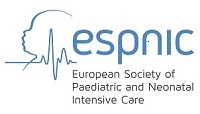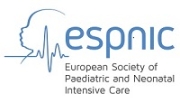COVID19 pandemics has already required a high tribute with millions of deaths particularly in patients in adulthood and elderly.
COVID19 can however also affect pediatric patients and these cases have been somehow more visible as the vaccination campaign advances through the adult population. Severe and life-threatening COVID19 has been described in all pediatric ages from neonates to late childhood. Unfortunately, deaths have also occurred despite full intensive care. In some cases, long-term sequelae have also been reported. Moreover, pediatric patients are also vulnerable at a distance as they may develop PIMS (Pediatric inflammatory multiorgan syndrome) which may take a variable clinical appearance, occurs several weeks after COVID19 and is associated with severe negative outcomes.
More and above this, treatments for pediatric COVID19 are essentially based on the adult experience but there is a significant lack of dedicated evidence, thus there is a significant uncertainty about the therapeutic strategy and timing. ESPNIC is committed for the intensive care of critically ill children of any age and has already issued some advices for critical care of pediatric COVID19. It is crucial for ESPNIC to support the pediatric vaccination campaign recently made available in many European countries.
The available evidence shows that pediatric vaccination can prevent the aforementioned clinical consequences of COVID19 in children and is even more important given the uncertainty about the treatment strategy. While adult vaccination advances, it is of utmost importance to protect children as they remain the population group more homogenously unvaccinated and vulnerable to SARS-CoV-2. Also, while waiting for evidence about pediatric treatments, vaccination represent our best weapon to protect children.
During this winter many are experiencing lack of NICU/PICU beds, as there is a surge of RSV infections, while other children steadily require critical care for other reasons. Therefore, vaccination becomes a pivotal tool to avoid NICU/PICU beds shortage and prevent ethically sensible situations where children in need would risk missing adequate care.
All in all, not only evidence shows that pediatric vaccination is efficacious and safe, but it is also useful for other severely ill children needing our assistance and resources which risk to be insufficient for everyone.
We urge all healthcare authorities, pediatricians and colleagues working in pediatric and neonatal critical care to promote pediatric vaccination. No child should be left behind in this war against COVID19. ESPNIC is available to work with anybody in this direction.
Prof. Daniele De Luca (MD, PhD)
Medical President
Pauline Raymakers- Janssen (RN, MSc)
Nursing President

